What NOT to Allow in Your Septic System
 The best way to avoid problems with your septic system is to know what NOT to put in it. Most people know that you shouldn’t flush any non-biodegradable materials, but there are a lot of everyday things that we all use that also should not find their way into your system.
The best way to avoid problems with your septic system is to know what NOT to put in it. Most people know that you shouldn’t flush any non-biodegradable materials, but there are a lot of everyday things that we all use that also should not find their way into your system.
F.O.G.s
An easy way to remember the first batch of things that you should avoid putting down your drains:
- F = FATS
- O = OILS
- G = GREASE
If you can avoid putting fats, oils and grease down your drains, your septic system will need a lot less cleaning and pumping. Commercial businesses are required to add a grease trap to food preparation areas to separate this type of wastewater from their on-site septic system, but homeowners should take heed to keep this gunk out of their systems as well.
One way to keep F.O.G.s out of your system is to pour any residual fats, oils or grease from cooking into an old coffee can for disposal instead of rinsing it down the kitchen sink. Oils, which can include body oils, hair oils, baby oil and other non-cooking items, should also be avoided whenever possible and not rinsed directly into the drain. Some hair conditioners and body lotions also fall under this category, so learn to be a label reader and look for products that are septic-friendly.
![]()
Chemicals
We use a lot of chemicals each and every day and don’t even realize it. Ammonia in the window cleaner, bleach in surface cleaners, disinfectants for the toilets. A lot of these household chemicals eventually make their way into your septic system where they can wreak havoc on the natural balance of bacteria and filtration, eventually leading to septic failure.
While it is important to keep your home clean and germ-free, make sure to choose all-natural, chemical-free solutions whenever possible and use toilet bowl cleaners sparingly according to the guidelines on the product labels. Choose laundry soap, stain removers, dish washing liquid, dishwasher soap and other products that go directly into the drain carefully. Look for non-toxic options that are made safe for septic use and follow the directions for usage.
![]()
Septic Tank Additives
There are a lot of products available on the commercial market that claim to be safe for use in septic systems. These additives are supposed to help keep your septic system running clean and clear, but can actually damage your system in the long run. Stick to a responsible preventative maintenance and cleaning program, learn about proper care for your septic system and apply all that you have learned to your daily activities, and you’ll never need to add tank additives.
![]()
Toilet Trash Can
A lot of people use their toilet as a trash can, flushing things that really have no business being in the toilet, drain or septic system. We’ve already discussed oils, grease, chemicals and additives in your drains, but when it comes to the toilet, some people seem to lose all common sense. Non-biodegradable materials can actually kill off the beneficial bacteria that is used to treat your wastewater. Plastics, disposable diapers, feminine hygiene products, condoms, cat litter, pet food, and pet waste are some of these items.
![]()
Poisonous Materials
If you have any leftover household chemicals from a renovation project, make sure to dispose of them responsibly. Don’t pour them down the drain and don’t just throw them in the trash can. Check with your local hazardous waste collection center for information on the proper disposal of paint, paint thinner, solvents and other toxic chemicals that can be dangerous for your septic system as well as the local landfill. Other poisonous, toxic materials that should never make their way down household or garage drains include antifreeze, pesticides, oil and gasoline.
![]()
Knowledge is Power
The more you know about septic systems and how they work, the easier it is to properly maintain and care for yours. Preventative Maintenance Programs, such as the one offered by Septic Preservation Services can help you to save thousands of dollars on costly repairs by keeping your system clean and running smoothly. Give Septic Preservation a call at 877-378-4279 for more information about our septic services or visit www.septicpreservation.com

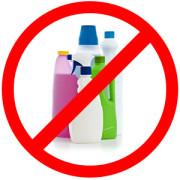
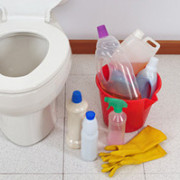
 How do antibacterial soaps affect your septic system?
How do antibacterial soaps affect your septic system?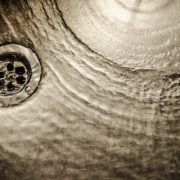
 Drain cleaners can be an easy choice when your kitchen or bathroom drain becomes clogged, but they are not a great choice for the health of your septic system. Septic systems rely on natural bacteria to treat wastewater. The harsh chemicals found in drain cleaners can kill the beneficial bacteria needed by your septic system to process wastewater.
Drain cleaners can be an easy choice when your kitchen or bathroom drain becomes clogged, but they are not a great choice for the health of your septic system. Septic systems rely on natural bacteria to treat wastewater. The harsh chemicals found in drain cleaners can kill the beneficial bacteria needed by your septic system to process wastewater.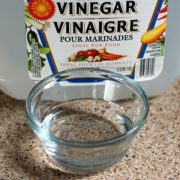
 One of the most important ingredients in your septic tank system is the microorganisms that live in the tank. These naturally-occurring microorganisms work to break down waste solids and process the sludge and wastewater in your system. Unfortunately, many of the chemicals and cleaning agents used in our everyday lives are harmful to the microorganisms. Homeowners that have a septic system, should refrain from using dangerous products that could potentially make their way into the septic tank and kill off these helpful microorganisms. Here are some tips that will help you to choose the best possible products for your home that are also safe for septic systems.
One of the most important ingredients in your septic tank system is the microorganisms that live in the tank. These naturally-occurring microorganisms work to break down waste solids and process the sludge and wastewater in your system. Unfortunately, many of the chemicals and cleaning agents used in our everyday lives are harmful to the microorganisms. Homeowners that have a septic system, should refrain from using dangerous products that could potentially make their way into the septic tank and kill off these helpful microorganisms. Here are some tips that will help you to choose the best possible products for your home that are also safe for septic systems.